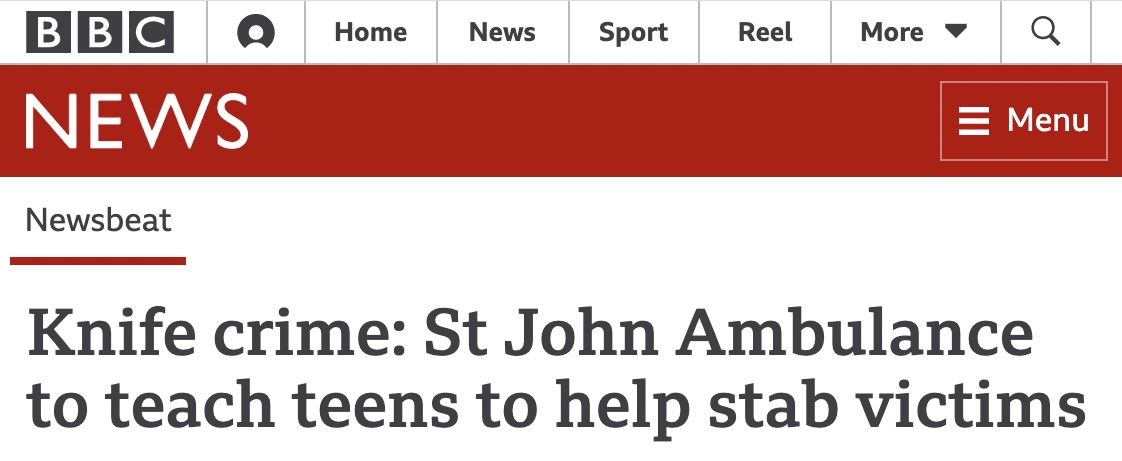Headline writers, crash blossom victims need your help
Language Log 2021-05-07
A headline from today's BBC News: "Knife crime: St John Ambulance to teach teens to help stab victims."
Way back in 2009, headlines with ambiguous syntax were dubbed "crash blossoms," after members of a copy editor forum noted the headline, "Violinist linked to JAL crash blossoms." But journalists enjoyed collecting such specimens long before that. The Columbia Journalism Review published an anthology of ambiguous headlinese in 1980 with a title that is a classic of the genre: Squad Helps Dog Bite Victim.
Like that old chestnut, the BBC News headline causes problems because the words following the verb help can be interpreted differently depending on how the parts of speech are parsed: bite in dog bite victim and stab in stab victims can be construed by readers as verbs instead of the intended nouns.
Another crash blossom involving help is a headline from the (UK) Times noted by Mark Liberman in 2017: "Queen Mother tried to help abuse girl." The ambiguity in that one is heightened by the fact that it involves the type of noun-noun compounding often seen in the British press (sometimes extended into spectacular noun piles). Understanding the headline requires knowing that abuse girl refers to a particular girl who was abused. At least the noun-noun compound in the latest BBC headline, stab victims, is a common collocation. But given that the complement of the verb help can begin with either a noun or the bare-infinitive form of a verb, readers have to decide on the fly which part of speech an ambiguous word like stab belongs to. Headline writers might help their audience by being more aware of the crash-blossom potential of help.
